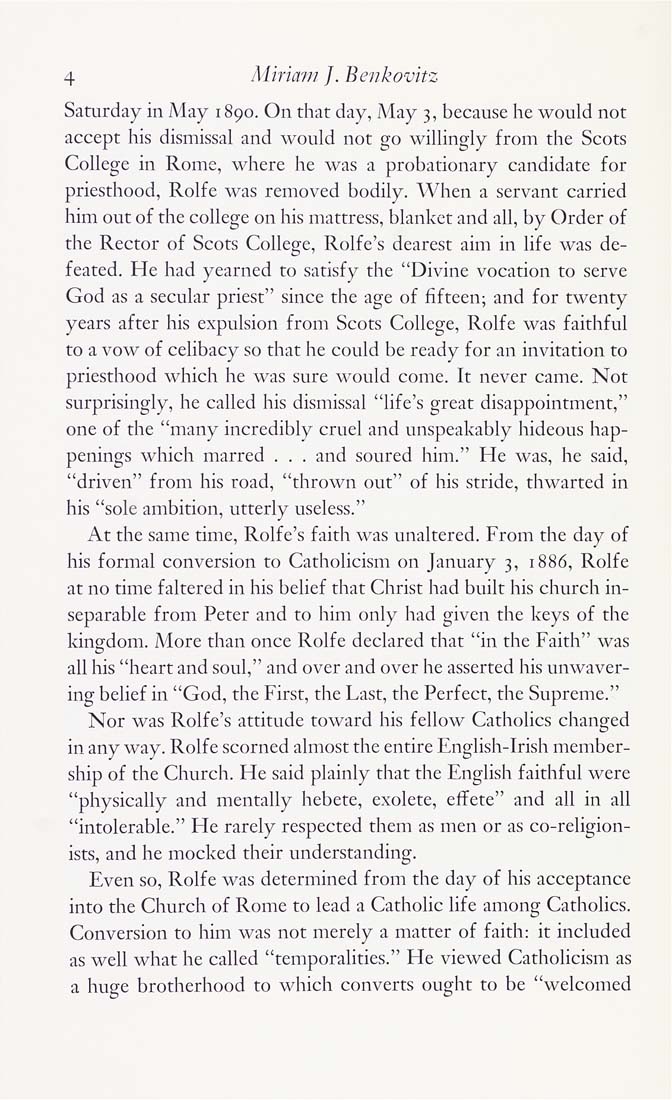Columbia Library columns (v.34(1984Nov-1985May))
(New York : Friends of the Columbia Libraries. )
|
||
|
|
|
|
| v.34,no.1(1984:Nov): Page 4 |

4 Miriam J. Benkovitz Saturday in May 1890. On that day. May 3, because he would not accept his dismissal and would not go willingly from the Scots College in Rome, where he was a probationary candidate for priesthood, Rolfe was removed bodily. When a servant carried him out of the college on his mattress, blanket and all, by Order of the Rector of Scots College, Rolfe's dearest aim in life was de¬ feated. He had yearned to satisfy the "Divine vocation to serve God as a secular priest" since the age of fifteen; and for twenty years after his expulsion from Scots College, Rolfe was faithful to a vow of celibacy so that he could be ready for an invitation to priesthood which he was sure would come. It never came. Not surprisingly, he called his dismissal "life's great disappointment," one of the "many incredibly cruel and unspeakably hideous hap¬ penings which marred . . . and soured him." He was, he said, "driven" from his road, "thrown out" of his stride, thwarted in his "sole ambition, utterly useless." At the same time, Rolfe's faith was unaltered. From the day of his formal conversion to Catholicism on January 3, 1886, Rolfe at no time faltered in his belief that Christ had built his church in¬ separable from Peter and to him only had given the keys of the kingdom. More than once Rolfe declared that "in the Faith" was all his "heart and soul," and over and over he asserted his unwaver¬ ing belief in "God, the First, the Last, the Perfect, the Supreme." Nor was Rolfe's attitude toward his fellow Catholics changed in any way. Rolfe scorned almost the entire English-Irish member¬ ship of the Church. He said plainly that the English faithful were "physically and mentally hebete, exolete, effete" and all in all "intolerable." He rarely respected them as men or as co-religion¬ ists, and he mocked their understanding. Even so, Rolfe was determined from the day of his acceptance into the Church of Rome to lead a Catholic life among Catholics. Conversion to him was not merely a matter of faith: it included as well what he called "temporalities." Fie viewed Catholicism as a huge brotherhood to which converts ought to be "welcomed |
| v.34,no.1(1984:Nov): Page 4 |







